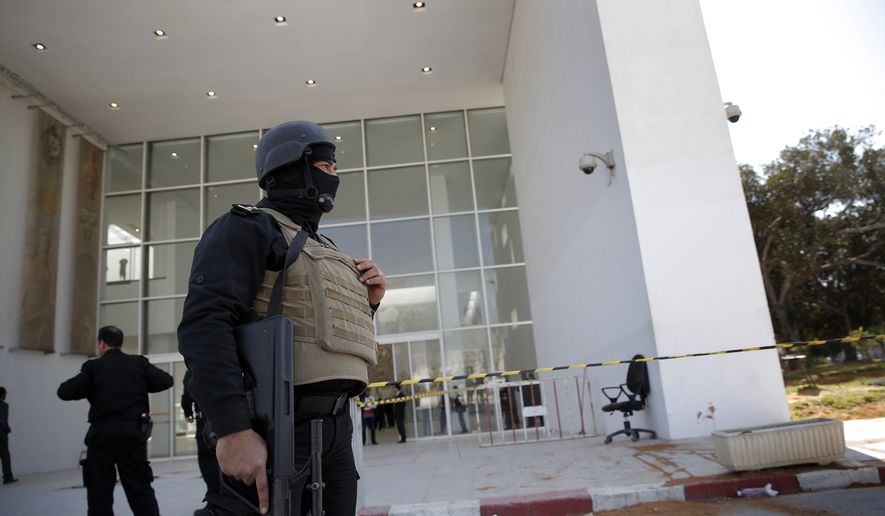Tunisian authorities announced Thursday that they arrested four people directly connected to Wednesday’s deadly museum attack, as well as five others who may be involved.
Authorities raised the death toll to 23 in the shooting at Tunisia’s National Bardo Museum, with 50 people estimated to be wounded.
On Wednesday, two gunmen shot at tourists who were getting out of buses, then ran inside the museum to take hostages. They were killed in a shootout with security forces that also left one law enforcement officer dead.
The Islamic State terrorist group reportedly claimed responsibilities for the attack. In a message posted to websites often used by the group and its sympathizers, it called the attacks a “blessed invasion of one of the dens of infidels and vice in Muslim Tunisia.”
However, security experts Thursday were still questioning whether the terrorist group’s leadership directed the attack or whether the group was simply trying to capitalize on the assault carried out by likely sympathizers of the group.
Authorities searching the museum Thursday morning discovered a Spanish couple who had hidden in the building all night following the attack. They were safely escorted from the premises.
The State Department confirmed that no Americans were killed in the attack. The victims appear to be Spanish, Colombian, Australian, British, Belgian, French, Polish and Tunisian. Many of those nations were making arrangements Thursday to offer transport home for any tourists who may still be in Tunisia.
Habib Essid, Tunisia’s prime minister, identified the two attackers as Yassine Laabidi and Hatem Khachnaoui. He said Laabidi had been flagged by intelligence officials, but was not believed to have any ties to a terrorist organization.
Tunisia has been trying to combat extremism in the country, but has faced an uphill battle. The government estimates that 3,000 of its citizens may have traveled to Syria and Iraq to join the Islamic State — one of the highest numbers of any Middle Eastern or North African nation.
Tunisian legislator Bochra Belhaj Hmida told The Associated Press that an estimated 2,000 suspected terrorists are believed to have returned to Tunisia after fighting with the Islamic State.
“They are in a situation of being lone wolves, where each of them is free to do the actions they want,” she said. “These are people who are let loose with weapons and wherever they can strike, they will not forgo the opportunity.”
• This article is based in part on wire service reports.
• Phillip Swarts can be reached at pswarts@washingtontimes.com.




Please read our comment policy before commenting.